ALL ABOUT THE BASS
One Day Symposium
-
Mon 8 Jul 24
08:30 - 17:00
-
Colchester Campus
-
Event organiser
Life Sciences, School of
Share, learn, discuss.
At this event, we showcased novel and emerging bass research and provided a forum to bring scientists, anglers and policymakers together for a morning of talks and an afternoon of workshops.
We covered such topics as bass biology, movements and habitat needs, stocks and spawn timing, the impacts of climate change and shifting distributions, and the importance of citizen science. As well as an update on the Bass Fisheries Management Plan (FMP), how to improve scientist and angler collaborations and how data can improve policy and management.
A report summarising the main findings and recommendations from the symposium can be downloaded here. Another output of the symposium workshops is a website called the Bass Information Hub. The hub is designed to help us to learn and share information around bass biology, ecology and management. It includes a Data Map signposting users to bass data collection efforts, past and present; and a Get Involved section listing opportunities for anglers and the general public to participate in current bass monitoring activities.
If you have any questions about the symposium, feel free to email us at anna.sturrock@essex.ac.uk
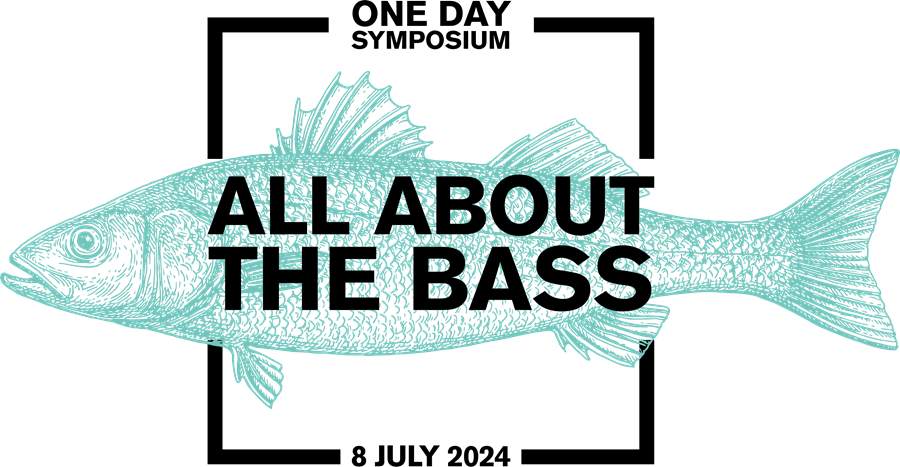
08:30-09:00 - Registration
Registration opens from 8:30am (BST) for online and in-person attendees. Online attendees should have received instructions about how to register for the Zoom meeting in the 'Schedule and Key Information' pdf. If you have any difficulties accessing the Zoom meeting, please email Joe at j.dawson@essex.ac.uk.
The Symposium will be held in the STEM Building Room 3.1 on Square 1 of the University of Essex campus. If you are attending in person, please arrive here at 8.30am for registration where you will be given a name badge and a printed copy of the schedule.
09:00-09:10 - Introduction
Dr Anna Sturrock and Dr Jules Pretty (University of Essex) will welcome delegates and provide an overview of the day.
09:10-09:45 - Dr Kieran Hyder (Cefas)
Keynote: Sea bass biology, ecology, and fisheries
Abstract
The European sea bass (Dicentrarchus labrax) is widely distributed across the northeast Atlantic. Sea bass are slow growing late maturing fish that have a complex life cycle, with adults migrating between feeding and spawning area. Adults aggregate to spawn with eggs and larvae drifting in the currents before settling in estuaries and shallow embayments. Fish will remain in nursery areas for 4-6 years before joining the adult population. Sea bass is a high value fish that is exploited by both commercial and recreational fisheries. Scientific assessments of sea bass in the North, Irish and Celtic Seas and the Channel have shown a rapid decline in the spawning stock biomass attributed to poor year class strength and high fishing mortality, and significant reductions in the harvest of sea bass have been implemented to conserve stocks. This talk will provide a short summary of the current scientific knowledge of sea bass biology, ecology, and fisheries for sea bass around the UK.
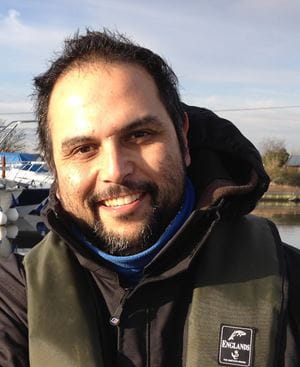
Biography
Dr Kieran Hyder is a Principle Fisheries Scientist at Cefas, which is part of the UK government. His research centres on the application of science to support policy and management of fisheries. Kieran leads research on sea bass genetics, connectivity, nursery grounds, spatial modelling, and fisheries assessment. He provides advice to Defra on sea bass and contributes to the stock assessment done by ICES. A lot of his research has focused on impacts and benefits of marine recreational fisheries, and he chairs the ICES Working Group on Recreational Fishing Surveys. He holds an Honorary Senior Lectureship at the University of East Anglia and has published over 80 peer-reviewed papers.
09:45-09:55 - Dr Mike Ladle (Bass Angler)
A fisher's view of bass populations
Abstract
Over millions of years the bass, a long-lived fish, has evolved strategies to cope with life’s many ups and downs. Year to year survival and growth are affected by variations in food supply, disease, and predation, all influenced by changes in climate, weather, and water quality. We are now aware that most of these factors are also affected by human activities. Added to these ‘natural regulators’, in recent decades bass have become a trendy, high value, food species and a popular angling catch: so, they must now suffer the added impacts of high tech commercial and sport fishing. Attempts to sustain bass stocks and maintain a satisfactory population structure for future years will require more science and less greed from us all. This short account suggests a few of the problem areas and possible solutions.
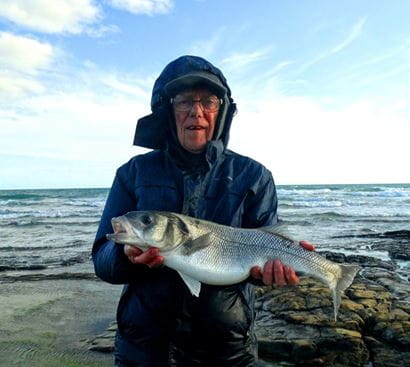
Biography
Mike lives in Dorset and is now retired. He has a PhD in Marine Ecology and is a lifelong angler. For almost forty years he carried out ecological research on the fish and invertebrates of chalk streams and published many scientific papers and magazine articles as well as a number of books including the popular “Operation Sea Angler” and “Hooked on Bass”. He has also lectured extensively and still goes fishing whenever he gets the chance. His website, Operation Sea Angler, now extends to thousands of pages on many aspects of angling and the related biology of marine fishes.
09:55-10:05 - Hannah Rudd (Angling Trust)
Building angler-science collaborations
Overview
Hannah Rudd talks about some of the participatory projects she has worked on as part of the Angling Trust and offers tips and guidance for successful collaborations between scientists and anglers.
10:05-10:10 - Dr Howard Freeman (University of Essex)
Understanding genetic connectivity patterns of European sea bass: Insights from Supper for Science
Abstract
A basic requirement for sustainable marine fisheries management is a thorough geographic understanding of stock delineations. These are largely based on patterns in population connectivity, which are in turn dependent on linkages between spawning and juvenile settlement areas. Important questions remain regarding the population structure of European sea bass population structure across its range. Understanding the relatedness of juvenile sea bass between adjacent and distant settlement sites and to adult populations can help reveal, and better define, the origins and boundaries of stocks. To do this we are genotyping juvenile and adult sea bass from UK estuarine and coastal systems, caught by ourselves and BASS anglers as part of the “Supper for Science” project, to understand relatedness within and between areas. Collectively, we will discuss how this project is succeeding, what could have been done better, how we can increase engagement in the future, and finally where we will be taking this work next.
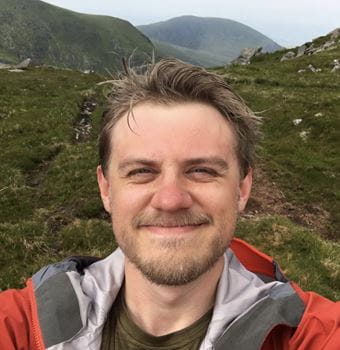
Biography
Dr Howard Freeman is a postdoctoral researcher. He is a coastal ecologist whose research focuses on how individual animals interact with all aspects of their environment and how this influences physiological processes, behaviour, and population level responses. He completed his BSc and MRes at the University of Plymouth and Marine Biological Association where he investigated diel vertical migration patterns in plaice. He completed his PhD at the University of Essex on the drivers of recruitment variation in sea bass, focussing on understanding habitat associations, larval settlement mechanisms, and overwinter survivability. He is currently involved with a FISP funded project to develop a sea bass tissue bank to better understand patterns in the connectivity of sea bass nurseries around the UK.
10:05-10:20 - Dr Anna Sturrock (University of Essex)
An Eyes and Ears approach to estimating the contribution rates of different bass nurseries to the adult stock
Abstract
As most mortality in marine fishes occurs during early life stages, quantifying variation in growth and survival among estuaries is critical to performing targeted protection or restoration measures. Here, we sampled newly settled juvenile bass from 19 estuaries along both sides of the English Channel and Portugal in 2022-23 and analysed their otolith (‘earstone’) and eye lens chemistry to build a chemical reference library and test the reliability of this method for identifying fish nursery area. The early results are promising, with significant differences in chemical signatures among estuaries that appear to be driven by variation in water chemistry and local food webs, with some potential influence of sewage pollution. We will now analyze the juvenile growth layers in the adult eyes and ears to estimate the contribution rates of each nursery area to the fishery, and to see whether it is predicted by habitat type/quality, juvenile abundance and/or condition.
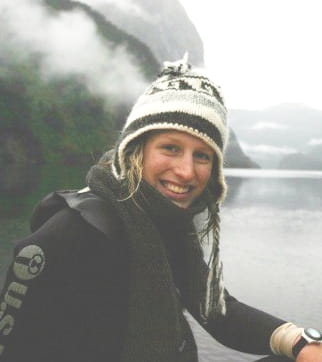
Biography
Dr Anna Sturrock is a Senior Lecturer and UKRI Future Leaders Fellow at the University of Essex. She primarily uses natural tags in archival structures such as otoliths and eye lenses to understand fish movements and health, generating empirical data to inform sustainable ecosystem management in a changing climate. She completed her undergraduate degree at the University of Edinburgh, her Masters at the University of Otago in New Zealand, and her PhD at the University of Southampton and the Centre for the Environmental Fisheries and Aquaculture Science. From 2012 to 2020 she was a researcher at the University of California Santa Cruz, Berkeley, then Davis focused on salmon and water management. Since moving back to the UK in 2020 she has been working her way back up the salinity gradient in projects focused on sea bass, flatfish, tuna, eels, cod and anchovies, particularly using chemical tracers to reconstruct nursery ground contribution rates to the adult stock. She is co-leader of a COST Action Working Group focused on marine connectivity and can be found on the twittersphere as @otolithgirl
10:20-10:40 - Q&A / Discussion
An opportunity to discuss the talks from 09:10-10:20 and for the speakers to answer questions.
10:40-11:10 - Break
11:10-11:15 - Joe Dawson (University of Essex)
How otolith growth rings reveal mismatches between spawn timing and fisheries closure periods for UK and European bass populations
Abstract
European seabass (Dicentrarchus labrax) is a species of high economic importance in the UK, supporting both a commercial fleet and a highly prized recreational fishery which is likely to become increasingly dominant due to poleward migration. Recruitment of juvenile D.labrax dropped sharply from 2009-2018, principally linked to high fishing mortality. Emergency measures have been in place since 2015 in attempts to ameliorate effects of successive poor year-class strength, primarily through the establishment of an annual fisheries closure over a two-month February-March window targeting proposed spawning timing. This work examined spawning and settlement timing, condition and growth rates through the use of otolith microstructural analysis (counts and widths of daily growth rings). Results found significant mismatch between the timing of fishery closures and the spawning date of cohorts (back-calculated median spawn date = May 5th ± 17 days SD), suggesting that the closure may be too early to effectively protect these stocks.
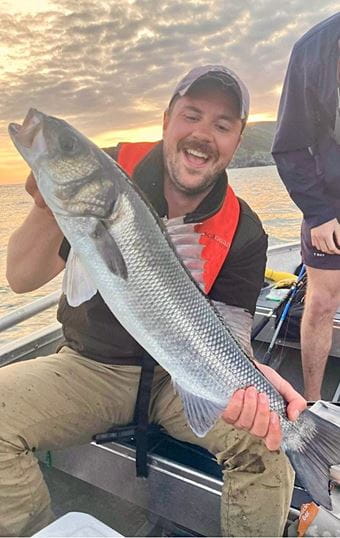
Biography
Joe Dawson is a researcher at the University of Essex. He is principally interested in the use of natural tags and biochronologies (growth rings) to track fish movement, growth and phenology, and how this data can inform species management. He completed his undergraduate degree at the University of Exeter before completing a research masters at Bangor University examining the spawning and recruitment timing of juvenile seabass into North Welsh nurseries. He is now expanding this work to cover UK and EU juvenile seabass populations to examine the effectiveness of current protection measures. He can be found throughout the warmer months with rod and reel in hand on various stretches of UK coastline.
11:15-11:25 - Dr Ian McCarthy (University of Bangor)
Welsh sea bass spawning: when and where?
Abstract
The European seabass (Dicentrarchus labrax) is a highly prized commercial and recreational species in Welsh waters. In this talk, I will present data on when and where seabass in Wales are spawning. Current seabass management has a closed season in February-March, however, data collected from Welsh sea bass indicates that they are spawning in March-May. This is based on the size and appearance of the gonads in adults and from spawning dates estimated from otolith daily growth increment counts in 0-group bass. We have also used three-dimensional hydrodynamic and Lagrangian particle tracking models, run in reverse, to identify probable spawning locations. This modelling indicates two broad spawning areas: the central Irish Sea providing recruits to north Wales and northwest England, and the southern Irish Sea/Celtic Sea providing recruits to south Wales. Surface temperatures and wind- and tide-driven surface currents determined the connectivity between spawning and settlement sites. Atmospheric drivers are expected to change in the future and management needs to account for potential regional shifts in spawning times and locations.
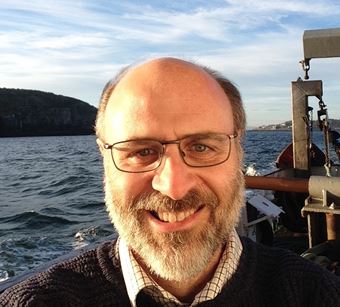
Biography
Dr Ian McCarthy is a Reader in Fish Biology in the School of Ocean Sciences at Bangor University. During a 30-year academic career, his research has included work on a range of freshwater and marine fishes (e.g. salmonids, cyprinids, cichlids, smelt, sciaenids, flatfish, triglids, mugilids, sea bass, wolffish, skates, sharks), plus the occasional study on invertebrates, within the broad fields of physiology, behaviour and ecology. He has worked on sea bass in Wales for 20 years with a particular interest in population biology, movement patterns and connectivity of seabass in the Irish and northern Celtic Seas.
11:25-11:35 - Steve Colclough (Institute of Fisheries Management)
Juvenile bass in saltmarshes and other intertidal areas
Abstract
Steve Colclough has sampled juvenile bass since 1985. He initiated a multi-method survey in the Thames estuary, sampling foreshores, saltmarshes and artificial terraces. This work went on to lead the UK development of estuarine fish sampling for WFD. In 10 years Steve and his team sampled over 80 estuaries across England, Wales and Scotland. They held a European field lead and conducted collaborative surveys across Europe. Juvenile bass were a major component in many of these estuaries from the mouth to the lower freshwater reaches. Since 2003, Steve has also sampled saltmarshes and constructed managed realignments across England (40 plus sites, some on multiple occasions). These can be key early life stage nurseries for bass. Recently Steve has trained local citizen scientists to deliver the surveys. Steve will share his observations on how juvenile bass and other species utilize saltmarshes and how this is now influencing site designs and advocates mimicing a natural marsh to optimise fish usage. Evidence that juvenile bass use the same habitat for the first summer suggests that we can significantly increase bass production by building new habitats in a sympathetic style.
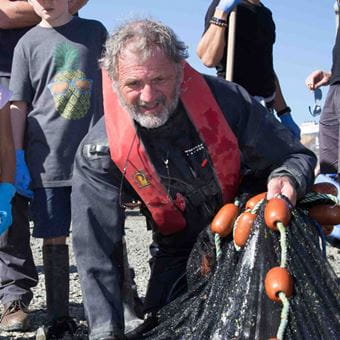
Biography
Steve Colclough led a national Environment Agency team in the 00’s that developed a multi-method fish survey programme for Water Framework Directive in transitional waters, later recognised as European Best Practice. Over that period Steve began to sample fish communities associated with salt marshes and managed realignments, recognising that few had studied these associations in Europe. After leaving the Environment Agency in 2011, Steve set up a small consultancy and is Chair of the Estuarine & Marine Section of the Institute of Fisheries Management (IFM). The principle aim of the IFM is to promote more sustainable fisheries management in fresh/tidal waters, through advocacy, training and technical support measures. Since 1985, Steve has been involved in fish sampling in 50 plus estuaries, 30 plus areas of saltmarsh and 40 plus managed realignment and saltmarsh terrace treatments. Today, Steve focuses on training groups of citizen science volunteers to conduct fish surveys in saltmarshes and managed realignments to advise on new treatment design features which will optimise fish utilisation. Throughout this work, juvenile bass have featured significantly. Steve will be providing some observations from his experiences at the symposium.
11:35-11:40 - Rachel Turnbull (University of Plymouth)
Understanding nursery habitat requirements: variation in abundance and condition of juvenile bass in south west English estuaries
Abstract
In order to appropriately define a nursery, understanding not only in which areas juvenile bass are present, but where they are most abundant and healthiest is critical. This information enables more detailed predictions of which areas may contribute most effectively to recruitment, thus informing the more targeted allocation of management resources. This work examined juvenile bass abundance from 24 sites across 9 estuaries in the southwest of England in May-September 2023. Additionally, this work used length: weight ratio, stomach fullness and hepatosomatic index to assess the body condition of individuals from these sites, as well as identifying patterns in these metrics within and between estuaries throughout the summer. Future work will focus on developing and refining more cutting-edge methods for assessing condition in the context of assessing periods of food deprivation, which is a common challenge faced by juvenile fish.
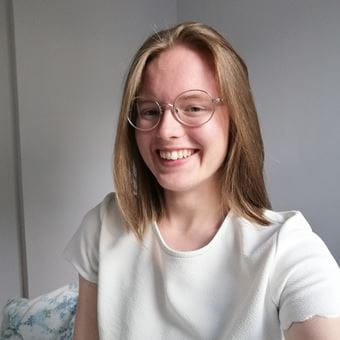
Biography
Rachel Turnbull is a PhD student in the School of Biological and Marine Sciences at the University of Plymouth. Her research focuses on the abundance, growth, and condition of juvenile bass in estuaries in the southwest of England, combining more traditional fisheries science techniques like seine surveys and otolith microstructural analysis with more cutting edge biochemical indices. Rachel is also a member of the International Council for the Exploration of the Seas (ICES) Working Group in the Value of Coastal Habitats for Exploited Species.
11:40-11:50 - Dr Filipe Martinho (University of Coimbra)
Long-term impacts of warming on juvenile seabass recruitment into estuaries
Abstract
Understanding how climate change affect key species is critical for species and ecosystem management and conservation. In this sense, long-term monitoring programmes appear as key tools for assessing changes in juvenile fish abundance, growth, and phenology. Firstly, we analysed the variability in recruitment of juvenile seabass (Dicentrarchus labrax) and other species with similar habitat use and life history patterns in the Mondego estuary (Portugal) and assessed the effect of environmental factors for 17 years (2003-19). The model showed that juvenile seabass abundance has been increasing since 2010-12, favoured by increasing seawater temperature. Secondly, using otoliths, we described the interannual variability in the timing and duration of hatching period and early-life growth of seabass juveniles, over a seven-year period (2011-17), and the respective effects of water temperature. Our results provide key insights on how seabass will cope with a warming ocean, in the context of climate change.
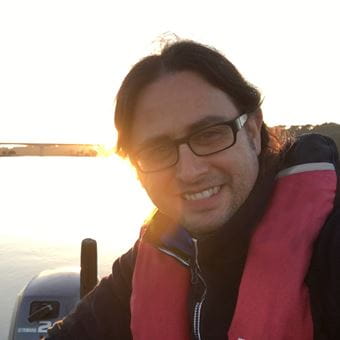
Biography
Dr Filipe Martinho is a researcher at the Centre for Functional Ecology and Department of Life Sciences at University of Coimbra, Portugal. His work focuses on the effects of climate change and anthropogenic pressures on marine and estuarine organisms (fish, plankton), on the use of estuaries as nurseries by early life stages of marine fishes, and on the use of otoliths to study fish migrations, habitat use, growth, and population structure. Filipe is a member of the ICES Working Group on the Value of Coastal Habitats for Exploited Species and co-leads the longest running monitoring program of estuarine fishes in Portugal, which started in 2003 in the Mondego estuary, where seabass is one of the most abundant species.
11:50-12:00 - Q&A / Discussion
An opportunity to discuss the talks from 11:10-11:50 and for the speakers to answer questions.
12:00-12:10 - Dr Mathieu Woillez (French Institute for Ocean Science)
Bass population structure and connectivity: a French perspective
Abstract
Because animal movements shape internal dynamics and population structure, the choice of inappropriate spatio-temporal scales for assessing populations can have disastrous effects on their exploitation. Here, we present evidences from French studies regarding biologically relevant stock boundaries of bass using tagging data, otolith microchemistry, genetic analysis, and egg and larvae drift modelling. 1466 bass were tagged along the French coast with electronic tags. More than 400 tags were recovered and their trajectories were reconstructed. Their analysis showed that migrants exhibit fidelity to summer feeding areas and to winter spawning areas. Otolith microchemistry confirmed the phenomenon of fidelity. Combined genetic and tagging analysis described the seasonal dynamic of the bass spatial structure. Drift model evidenced eggs from Biscay spawning grounds substantially contribute to northern bass nurseries depending of ocean conditions.Those results challenge our understanding of the functioning of bass population which may have significant consequences for its management.

Biography
Mathieu Woillez holds a master's degree in agronomy, with a major in fisheries science, from the Fisheries and Aquatic Sciences Center of « L’Institut Agro Rennes-Angers » (2001) and a doctorate in geostatistics from the Geostatistics Center of « Mines Paris – PSL » (2007) on the spatial analysis and modeling of fisheries survey data. He is a researcher in marine ecology and fisheries science at DECOD Unit Research (Ecosystem dynamics and sustainability: from source to sea), Ifremer, Brest. His current research focuses on fish movement and behaviours, spatial structure of fish populations, characterisation of essential fish habitats and their connectivity and spatial dynamics of fish resources. He is involved in seabass stock assessment at the International Council for the Exploration of the Sea (ICES), the international research body that provides scientific advices on the management of fish stocks to the European Commission.
12:10-12:20 - Dr Thomas Stamp (University of Plymouth)
Should I stay or should I go? Insights from tracking juvenile bass in coastal sites across the southwest UK
Abstract
Estuaries and coastal bays which are highly adapted by humans and at the same time known to be important nursery grounds for European bass. In the UK, 34 sites are designated and protected as Bass Nursery Areas, yet our understanding of how and why European bass exploit inshore and coastal habitats is poor. Using acoustic telemetry we tracked 146 sub-adult European bass for 814 days across three designated Bass Nursery Sites. Tagged fish were detected >5 million times, staying very local to the nursery site where they were first caught. Individual fish, were however also tracked moving up to 317km to other coastal sites, however, 81% of these fish returned to their original nursery site. The results from our work have highlighted that while individuals can and do move over large distances, juvenile bass populations are generally very associated to specific locations. Since this initial study, the research group has expanded and branched into different species and using different types of tags. As part of this talk I will provide an overview of different tagging techniques we (and others) use and what stories they’ve told us.
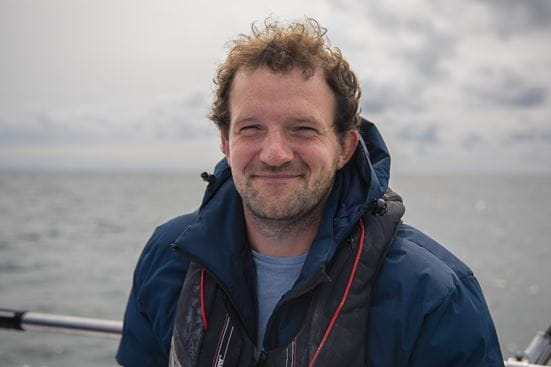
Biography
Dr Thomas Stamp is a Post Doctoral Research Associate in the School of Life Sciences at University of Plymouth. In collaboration with the Devon and Severn IFCA and Plymouth university, Thomas completed his PhD in 2020 on European bass movements and habitat use within estuaries. This work ranged from: yomping across miles of muddy saltmarsh with nets a fyke net, to tracking the movements of juvenile fish using acoustic telemetry. Since then, Tom has helped co-develop one of Europe’s largest fish tracking surveys and continues to work on European bass (among other species), to answer applied fisheries management questions at both regional and international scales.
12:20-12:30 - Dr Susanne Tanner (University of Lisbon)
Not so much a sea bass: Divergent freshwater incursions of European sea bass
Abstract
The existence of distinct migratory and resident individuals within fish populations has been reported increasingly. This phenomenon referred to as partial migration entails a trade-off between multiple factors and can evolve and be maintained either when different life-history strategies produce the same lifetime fitness or because of conditional strategies dependent on individuals. Several species within the family of the temperate basses (Moronidae) exhibit contingents or subpopulations, that have different movement behaviors along the marine-freshwater gradient. European sea bass (Dicentrarchus labrax) is a marine migrant, with juveniles commonly using estuaries and even freshwater environments. Although, the co-occurrence of residents and seasonal migrants has been reported in marine environments, there are no reports of adult seabass using freshwater habitats. Here, we document the occurrence of adult sea bass in freshwater environments in the Tagus River, Portugal (~150 km upstream from river mouth and 80 from tidal influence) using individuals captured by anglers and data obtained by interviewing commercial and recreational fishers regarding the spatio-temporal patterns of freshwater use of adult sea bass.
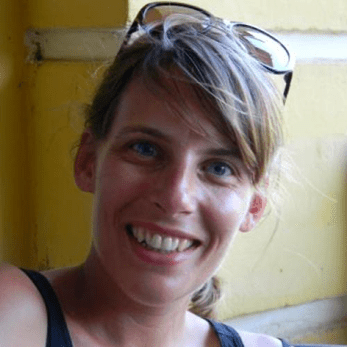
Biography
Dr Susanne Tanner is a senior researcher at the Marine and Environmental Sciences Centre (MARE) and an adjunct Assistant Professor at the Faculty of Sciences, University of Lisbon, Portugal. Her research focuses on 1) estimating fish population structure and connectivity, mainly using chemical markers as well as by integrating different natural markers and modelling approaches; and 2) assessing the impacts of climate change and fishing on growth variability, fish population and marine ecosystem productivity. She is part of a multidisciplinary team investigating movements of adult European seabass into fully freshwater environments, a movement behavior recently described for the Tagus River (Almeida et al. 2023). By combining acoustic telemetry, otolith chemistry and genetics the team aims to better understand the diversity of seabass freshwater incursions and its importance for the population.
12:30-12:35 - Dr Ciara Wögerbauer (Inland Fisheries Ireland)
European sea bass - Bass anglers as stewards of bass in Irish waters
Abstract
Since the banning of commercial fishing for European seabass (Dicentrarchus labrax) in Irish waters, bass are the only marine fish species in Ireland managed solely for angling. As such, anglers play an important role in the stewardship of bass in Irish waters. Inland Fisheries Ireland runs the National Bass programme, which intertwines a monitoring programme of bass nursery estuaries and also a citizen science strand where bass anglers can measure, scale, tag and report their catches. This talk will cover the Irish estuaries where bass are encountered regularly as juveniles, and also the important contribution bass anglers make to Ireland’s understanding of the adult bass population as citizen scientists. In addition, this talk will briefly include IFI’s experience with data collection apps for recreational angling and angling best practice recommendations for bass and other species.
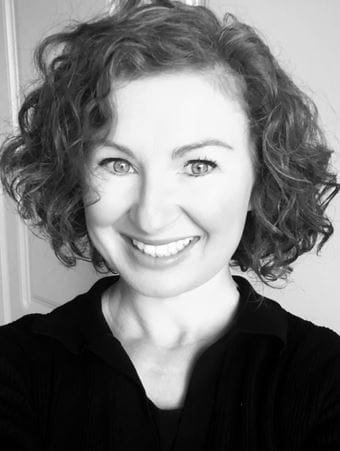
Biography
Dr Ciara Wögerbauer is research technician within the Marine Team in Inland Fisheries Ireland (IFI). IFI is the environmental agency responsible for protecting, managing, and conserving Ireland's inland fisheries and sea angling resources. Ciara has a background in Zoology and a PhD in Aquatic Ecology. Within IFI’s Marine Team, she works on three programmes: the National Bass Programme, the Tuna CHART bluefin tuna data collection programme and the Marine Sport Fish Elasmobranch Tagging programme. Common themes across her work are citizen science and mark-recapture tagging. Ciara's research interests include Irish juvenile bass nurseries estuary habitat, the link between bass nurseries and the adult stock, citizen science app development, best practice angling and fish handling techniques fish welfare.
12:35-12:45 - Dr Christina Hunt (University of Portsmouth)
Competitive Angling as a Scientific Tool
Abstract
Competitive Angling as a Scientific Tool aims to enhance our knowledge of five data deficient species in the Solent: bass, black bream, smoothhound, skates and tope. We are harnessing the power of citizen scientists by collaborating with a catch-photograph-release angling competition (Sea Angling Classic). Anglers submit georeferenced photos of each fish on a measuring board, which provides species, size and catch location data. By combining fish records with GPS trackers we can identify fish hotspots and coldspots. We are also developing an Artificial Intelligence model to identify and measure fish from photos. Replicating our method will provide an easy way of collecting data to study changes over time and therefore inform the development of sustainable fishery management plans.
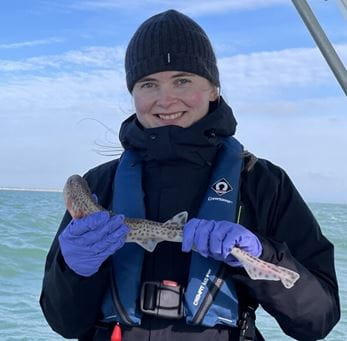
Biography
Dr Christina Hunt is a Senior Research Associate at the University of Portsmouth. She is currently working on the ‘Competitive Angling as a Scientific Tool’ project, a partnership between the University of Portsmouth, Angling Spirit and Southern IFCA. The project utilises data collected during the annual ‘Sea Angling Classic’ competition in the Solent, which is run as a catch-photograph-release competition. The aim of the project is to increase our knowledge of the biology and ecology of fish species that are considered data deficient within the Solent, including European seabass.
12:45-13:00 - Q&A / Discussion
An opportunity to discuss the talks from 12:00-12:45 and for the speakers to answer questions.
13:00-14:00 - Lunch
We will take a 1 hour break. Lunch will be provided for in-person attendees. If you have any dietary requirements please email c.connell@essex.ac.uk.
14:00-14:05 - Overview of afternoon workshops
Clare Connell (University of Essex) will provide an overview of the afternoon workshops.
14:05-14:15 - Katie St John Glew (Defra)
Katie will provide an update on the development of the latest Fisheries Management Plan (FMP).
14:15-15:25 - Workshop Part 1: What, where and how are we catching and monitoring bass?
The aim of the workshop is to share knowledge and map the current landscape of bass catches and monitoring, how this is being done and what the barriers and issues are around data collection and angler participation.
15:25-16:05 - Break
We will take a 40 minute break. Refreshments will be provided for in-person attendees.
16:05-16:50 - Workshop Part 2: How could scientists and bass fishers work better together to improve the evidence base?
In this workshop we will be discussing and sharing ideas about how to improve processes and overcome barriers, which could help increase collaboration between anglers and scientists and improve the bass evidence base.
16:50-17:00 - Closing remarks
Anna Sturrock (University of Essex) and Robin Bradley (BASS) will deliver closing remarks for the symposium.
17:00-18:00 - Drinks reception
Join us as we continue discussions over a beer, wine, or soft drink.
Organisers
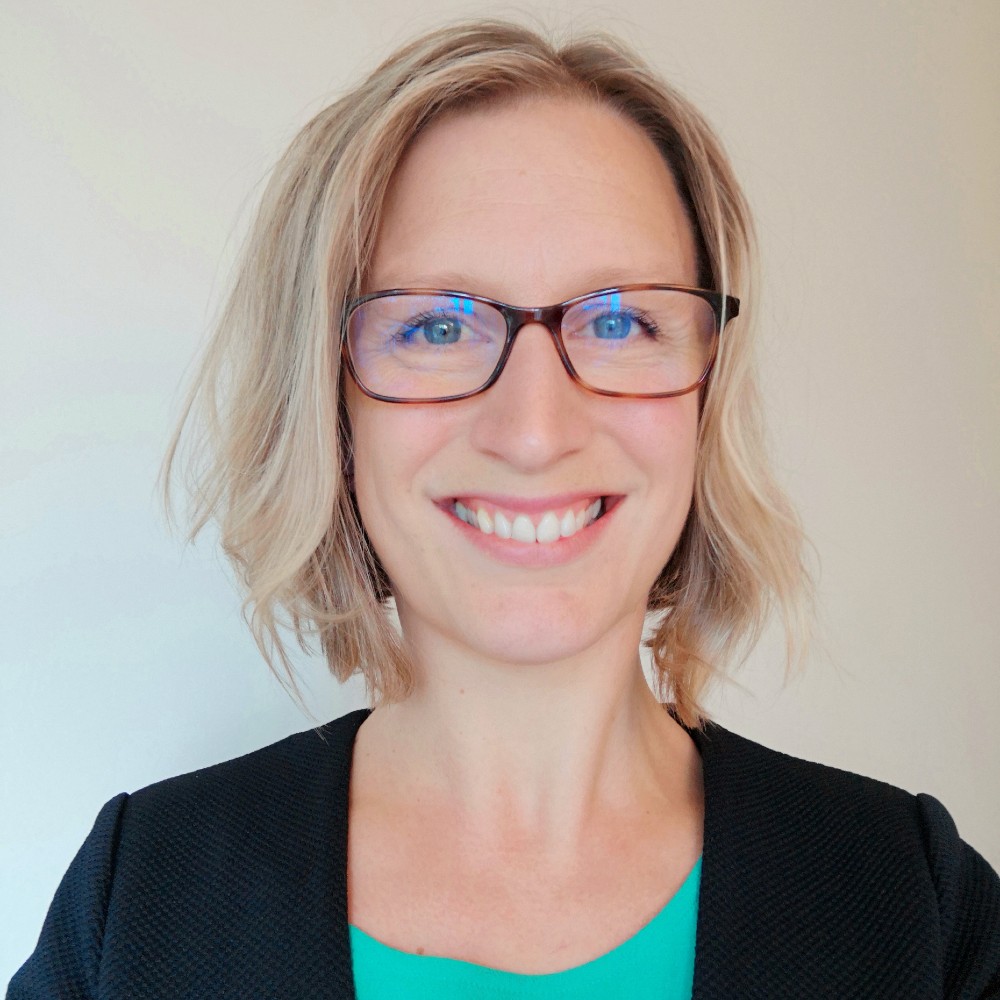
Senior Lecturer
School of Life Sciences, University of Essex
Science Lead
Bass Angler's Sportfishing Society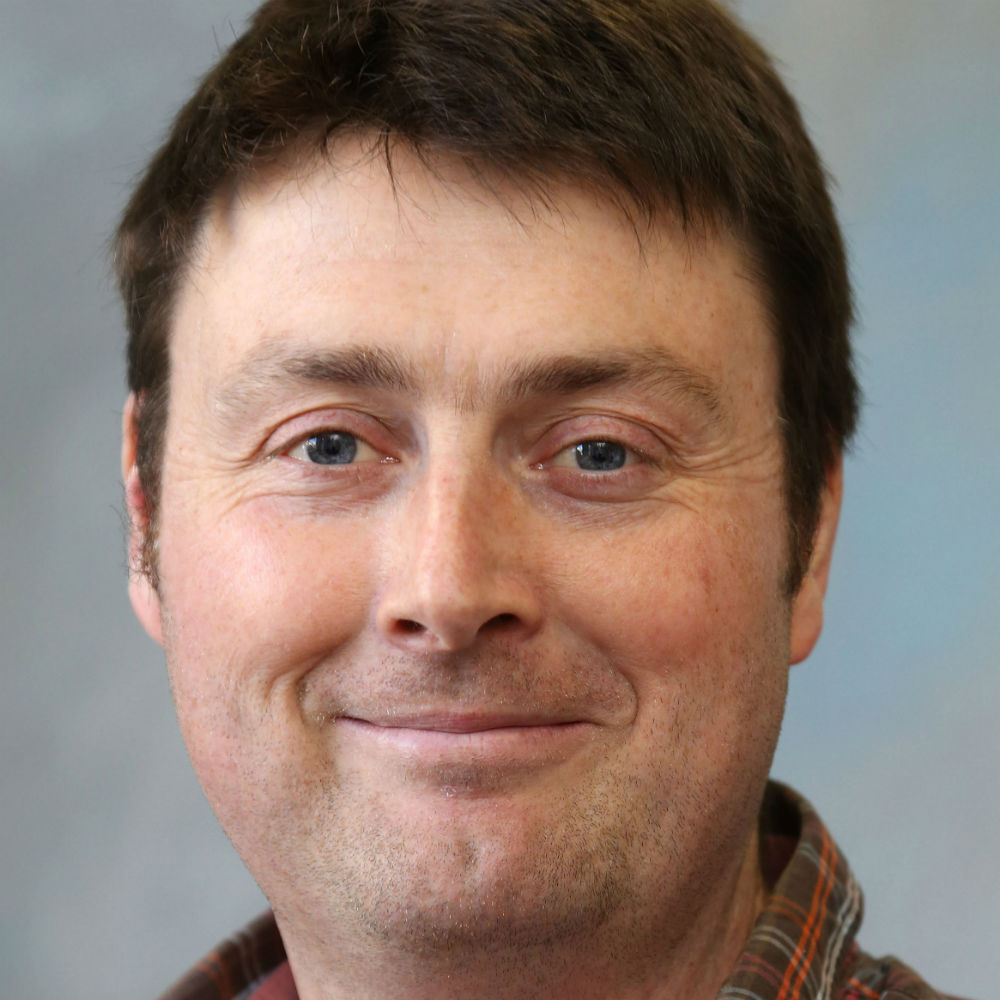
Professor
School of Life Sciences, University of Essex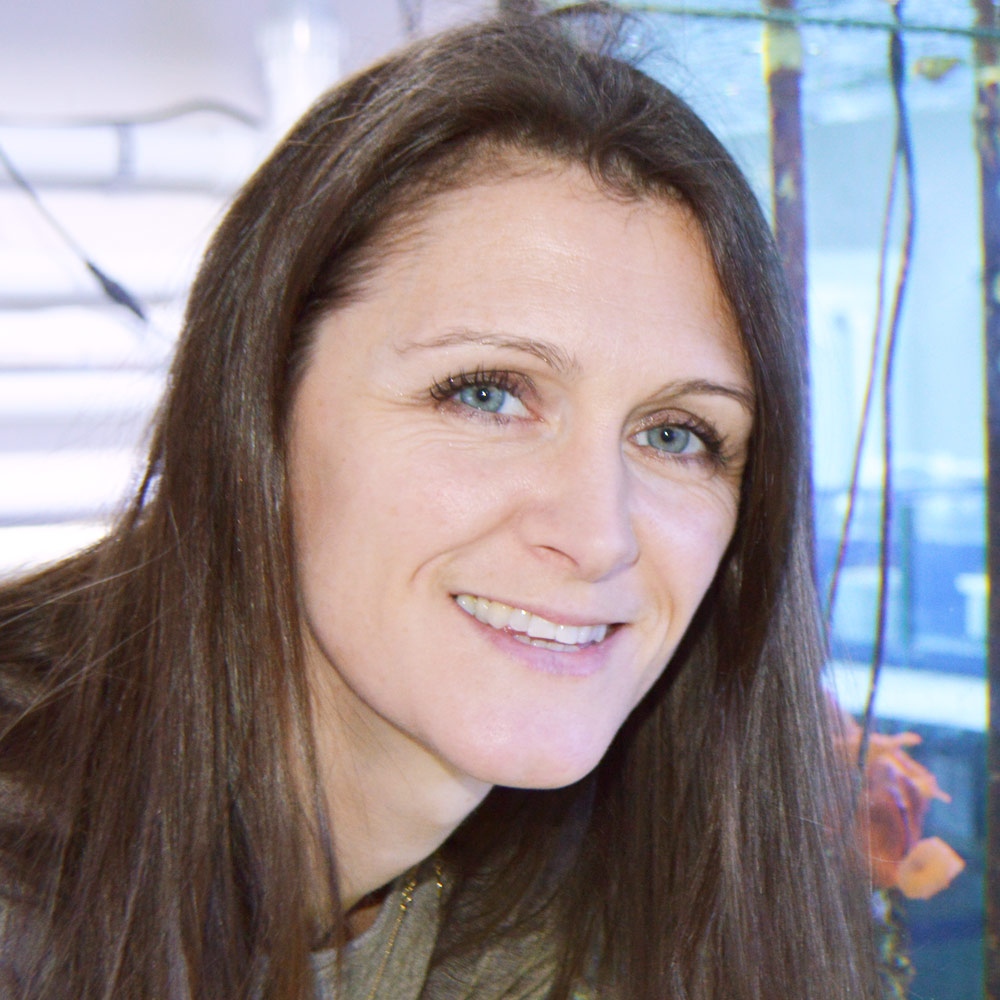
Senior Lecturer
School of Life Sciences, University of Essex
Senior Research Officer
School of Life Sciences, University of Essex
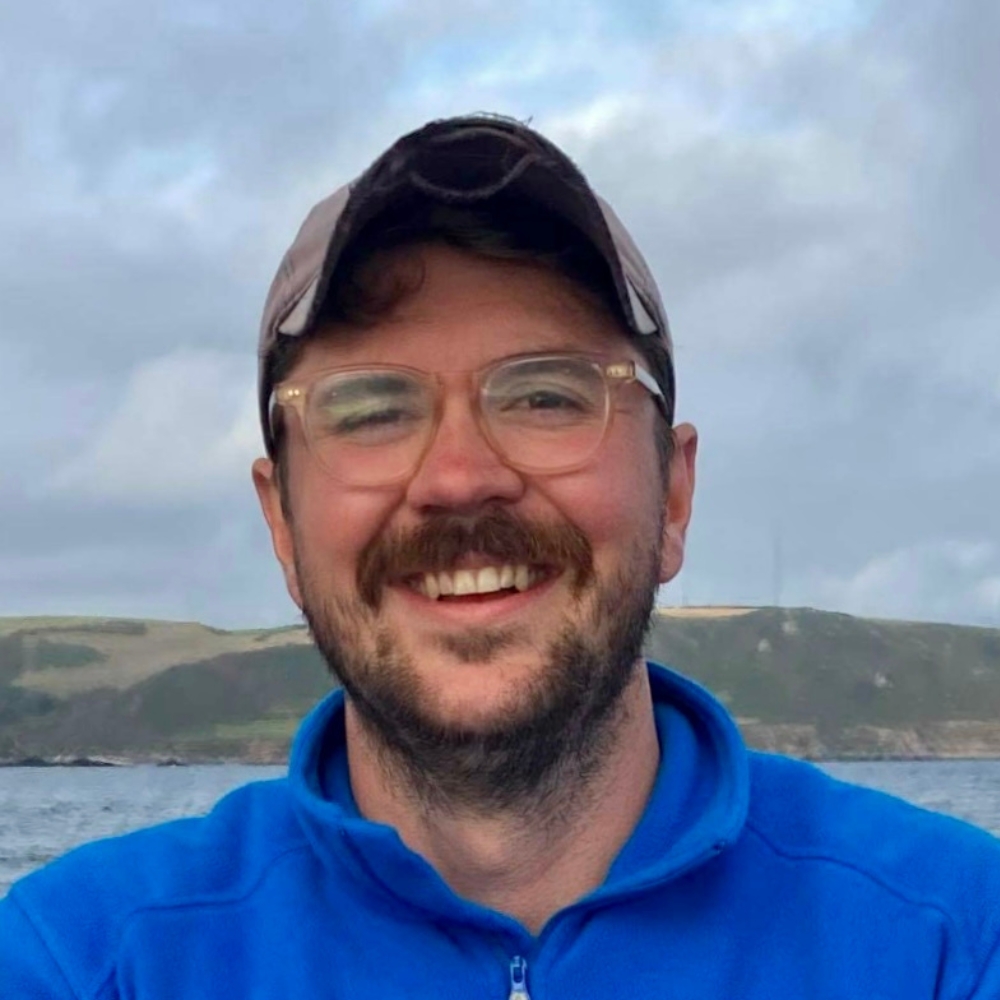
Research Assistant
School of Life Sciences, University of EssexProject partners
